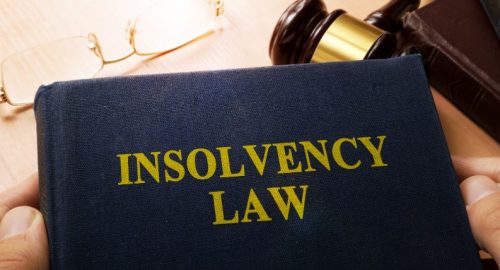Debt collection in the UK is a structured process designed to help businesses recover unpaid debts while adhering to legal guidelines. This framework ensures fair treatment of debtors and protects creditors’ rights, promoting ethical practices throughout.
The process typically begins with informal steps, such as reminders and discussions, and may escalate to formal actions like court claims if necessary. Compliance with regulations, including the Consumer Credit Act and FCA standards, is crucial to maintain fairness and transparency.
Understanding the stages of debt collection, from initial reminders to legal actions, helps businesses manage overdue payments effectively. By following these steps, companies can protect their financial interests while maintaining positive client relationships.
The Debt Collection Process in the UK

The debt collection process in the UK involves a series of structured steps to recover overdue payments owed to creditors. Governed by strict legal requirements, it ensures ethical treatment of debtors while enabling creditors to pursue their claims effectively.
For businesses facing complex debt issues, consulting insolvency practitioners London can provide valuable guidance on recovery strategies and compliance with legal obligations.
The Legal Framework for Debt Collection
In the UK, debt collection is governed by several key legal guidelines designed to protect both creditors and debtors. The Consumer Credit Act establishes rules for lending and collecting debts, ensuring transparency and fairness in financial transactions.
Additionally, the Financial Conduct Authority (FCA) regulates debt collection practices, requiring creditors and debt collection agencies to act fairly, honestly, and professionally when recovering debts.
They must follow the FCA’s CONC (Consumer Credit sourcebook), which outlines specific conduct rules for dealing with consumers in debt.
Furthermore, the Debt Respite Scheme, also known as Breathing Space, provides temporary relief for individuals facing financial difficulties, preventing creditors from taking enforcement action for a limited period.
These regulations emphasize the need for creditors to treat debtors ethically, ensuring that they follow due process and avoid any unfair or aggressive collection practices. Adherence to these legal frameworks not only protects consumers but also fosters trust in the financial system.
The Role of Debt Collection Agencies and Insolvency Practitioners
Debt collection agencies and insolvency practitioners play a crucial role in assisting creditors with the recovery of debts. Debt collection agencies specialize in contacting debtors to negotiate payment arrangements, often using established procedures and communications strategies to encourage prompt repayment.
They can handle the initial stages of debt collection, such as sending reminders and formal letters, which can alleviate the pressure on creditors and maintain business relationships.
Insolvency practitioners, on the other hand, provide a broader range of services, particularly when a debtor is unable to pay.
They help creditors understand the financial position of the debtor and can advise on the most suitable course of action, whether that involves negotiation for repayment plans or pursuing legal proceedings.
Working with regulated professionals ensures compliance with relevant legal and ethical standards, which not only protects the creditor’s interests but also promotes fair treatment of debtors throughout the debt recovery process.
Steps to Prepare for Debt Collection
Before initiating debt collection, creditors should take essential preparatory steps. Gathering complete documentation, including the original agreement, invoices, and communication records, is crucial.
A clear understanding of the debt owed and the terms of the agreement helps streamline the collection process and strengthens the case for potential legal action.
A Review of the Terms of the Agreement
Reviewing the original agreement or contract is crucial for creditors seeking to recover overdue payments. This process clarifies payment terms, schedules, interest rates, and penalties for late payments, ensuring actions are within the contract’s framework.
Understanding these terms establishes a strong legal basis for debt collection and ensures compliance with regulations, minimizing disputes. If the contract specifies actions for defaults, such as additional fees or legal proceedings, referencing these clauses reinforces the legitimacy of claims and emphasizes the importance of timely payment.
A thorough contract review is an essential step in the debt recovery process, supporting both legal and persuasive efforts.
Collection of Evidence for Unpaid Invoices and Communication
Collecting comprehensive evidence is essential for creditors recovering unpaid invoices. Key documentation includes invoices, emails, and phone communication records, which establish a clear timeline of interactions with the debtor.
Organized records substantiate the creditor’s claim and are invaluable if legal proceedings are required. Documentation of communication attempts highlights efforts to resolve the matter amicably and reinforces the debtor’s obligation to pay.
Evidence of agreed payment terms, reminders, and responses creates a solid foundation for potential court claims. This thorough approach strengthens the case and facilitates smoother debt collection, supporting effective communication with debtors and third parties like agencies or legal representatives.
Initial Steps for Debt Recovery

When debtors fail to pay on time, creditors should adopt a structured approach to debt recovery. Start with gentle reminders, as many debts can be resolved at this stage. If payments remain overdue, escalate to formal notices. Addressing overdue payments quickly can encourage prompt resolution without resorting to legal action.
A Friendly Reminder to Encourage Payment
When a payment is overdue, starting with a polite reminder can be an effective first step. This approach allows the debtor to address the issue without feeling pressured, often resolving the matter quickly.
A friendly reminder should restate the payment deadline and amount owed while expressing understanding of any difficulties the debtor may face. Maintaining a positive tone helps preserve business relationships and encourages open communication.
By handling the situation tactfully and professionally, creditors increase the likelihood of prompt payment and minimize conflict. A polite reminder often resolves issues before formal debt recovery actions are necessary.
Sending a Formal Letter Before Action
A Letter Before Action (LBA) is a formal notice used by creditors in the UK when payment reminders fail. It serves as a warning to the debtor, outlining the total debt owed, previously agreed payment terms, and a clear deadline for settlement.
The LBA also states the creditor’s intent to pursue legal action if payment is not made within the specified timeframe. This document creates a record of the creditor’s efforts to resolve the issue amicably, demonstrating due process to both the debtor and potential legal authorities.
Sending an LBA emphasizes the seriousness of the situation while giving the debtor one final opportunity to settle the debt before legal proceedings begin.
Escalation to a Debt Collection Agency
If initial attempts to recover a debt fail, creditors may opt to engage a debt collection agency. These agencies act on behalf of the creditor to contact the debtor, encouraging payment through professional communication. This approach provides a structured solution before resorting to formal legal action.
Selection of a Reputable Debt Collection Agency
Choosing a regulated and reputable debt collection agency is essential for effective and ethical debt recovery. Agencies governed by the Financial Conduct Authority (FCA) in the UK ensure compliance with strict ethical standards, safeguarding both the debtor’s rights and the creditor’s reputation.
A professional agency enhances the chances of successful recovery while minimizing legal risks from unethical practices. Additionally, transparent communication with both creditor and debtor fosters collaboration, helping resolve debts lawfully and respectfully. This approach preserves business relationships and benefits all parties involved.
Benefits and Limitations of Debt Collection Agencies
Utilizing a debt collection agency can offer several advantages for creditors. Firstly, agencies bring expertise and professionalism to the debt recovery process, which can enhance communication with debtors and improve the likelihood of successful collections.
They have established processes and tools to handle collections efficiently, saving creditors valuable time and resources. Additionally, outsourcing debt collection allows businesses to focus on their core operations while leaving the complex task of recovery to specialists.
However, there are limitations to consider. Debt collection agencies do not possess the legal authority to enforce payment directly; they cannot seize assets or take legal action without the creditor’s consent.
If a debtor remains uncooperative, further steps, such as legal action, may still be necessary, which can incur additional costs and time. It is essential for creditors to weigh these benefits and limitations when deciding whether to engage a debt collection agency in their recovery efforts.
Mediation and Alternative Dispute Resolution (ADR)
Mediation and Alternative Dispute Resolution (ADR) are effective methods for resolving debt disputes without resorting to court. These approaches foster collaboration between creditors and debtors, enabling them to reach mutually agreeable solutions.
ADR can help preserve business relationships, making it particularly valuable in complex or contentious situations.
Advantages of Mediation in Debt Disputes
Mediation offers several advantages in resolving debt disputes, primarily by facilitating a faster and more cost-effective process compared to traditional court proceedings.
By providing a neutral environment, mediation allows both parties to communicate openly and express their concerns, which can lead to a mutually acceptable solution without the adversarial nature of litigation. This collaborative approach helps reduce stress for both creditors and debtors, fostering a more amicable resolution.
Moreover, mediation can significantly lower legal costs and avoid the lengthy timelines often associated with court cases, allowing businesses to preserve valuable resources.
Successful mediation can also help maintain or even strengthen business relationships, as both parties work together to find a satisfactory outcome.
This focus on cooperation and compromise can lead to better long-term results, as both sides are more likely to adhere to the agreed-upon terms when they have actively participated in the negotiation process.
Choosing the Right Mediator or ADR Service

Selecting the right mediator or alternative dispute resolution (ADR) professional is crucial for effectively resolving debt-related disputes. An experienced mediator with a specialization in debt issues brings valuable insights and skills that can facilitate productive discussions between creditors and debtors.
This impartial third party plays a key role in ensuring that both sides feel heard and understood, which is essential for reaching a fair agreement.
A skilled mediator can guide the conversation, helping to identify common ground and encouraging collaborative problem-solving. Their expertise allows them to navigate the complexities of financial disputes, ensuring that discussions remain focused and constructive.
Furthermore, choosing a mediator with a proven track record in debt-related cases can enhance the likelihood of a successful resolution, minimizing the need for costly litigation. By prioritizing the selection of a qualified mediator, both creditors and debtors can benefit from a more efficient and satisfactory resolution to their financial disagreements.
Legal Action for Debt Recovery
Legal action is a formal and enforceable option for debt recovery when other methods have been exhausted. While pursuing legal routes can be costly and time-consuming, it may be essential to secure debt repayment. Available avenues include filing court claims and issuing statutory demands to compel payment.
Filing a Court Claim for Unpaid Debt
Filing a court claim for unpaid debt begins by determining whether the case should be brought to the County Court or High Court, depending on the amount owed. For debts under £100,000, the County Court is typically the appropriate venue.
The process starts with completing a claim form and submitting it to the court, along with the appropriate fee. After the claim is filed, the debtor is served with a copy of the claim and has 14 days to respond.
If they fail to do so, the creditor can request a default judgment, which legally obliges the debtor to pay. If the debtor contests the claim, the case may proceed to a hearing where both parties present their arguments.
Once a judgment is issued in favor of the creditor, they can take further steps to enforce the payment, such as applying for bailiff action or a charging order.
Using a Statutory Demand for Debt Enforcement
A statutory demand is a formal, legally recognized request requiring a debtor to pay a debt within 21 days. It is particularly effective for larger debts exceeding £750 and must be delivered in writing, clearly stating the amount owed, details of the debt, and the creditor’s intention to pursue further legal action if unpaid.
If the debtor fails to respond or settle within the specified period, the creditor may file a winding-up petition in court, potentially leading to the debtor’s company being liquidated. This underscores the seriousness of the demand, often prompting payment to avoid severe consequences.
Statutory demands demonstrate the creditor’s commitment to recovering the debt and serve as an assertive step before escalating to legal proceedings.
Enforcing a Judgment if Debt Remains Unpaid
If a debtor fails to pay after a court judgment, creditors have several enforcement options. They can apply for bailiff action, allowing bailiffs to seize assets to settle the debt. Alternatively, creditors may pursue a charging order, placing a legal charge on the debtor’s property to secure repayment.
Bailiff Action to Recover the Debt
Bailiffs, also known as enforcement agents, are appointed by the court to recover debts through various means, including visiting the debtor’s premises to seize assets. When a creditor has obtained a judgment against a debtor, they can request a bailiff to act on their behalf.
The bailiff will first notify the debtor of their visit, ensuring compliance with legal protocols. If the debtor fails to pay or make arrangements, the bailiff has the authority to seize goods that can be sold to recover the owed amount.
This process not only facilitates debt recovery but also serves as a strong deterrent against non-payment. The presence of a bailiff and the possibility of losing assets often prompt debtors to settle their debts promptly.
Importantly, bailiffs must follow strict legal guidelines during this process to ensure that their actions are fair and compliant with UK regulations, protecting the rights of both creditors and debtors.
Securing a Charging Order on Debtor’s Property
A charging order is a legal mechanism that places a charge on a debtor’s property, ensuring that the debt is prioritized for repayment if the property is sold. Once a creditor obtains a judgment against a debtor, they can apply for a charging order, which, upon approval, secures the creditor’s claim against the property in question.
This means that when the property is eventually sold or refinanced, the debt must be settled before any proceeds are distributed to the debtor.
This approach not only provides a level of security for the creditor but also serves as a powerful incentive for the debtor to resolve the outstanding debt. By establishing a priority claim on the property, creditors can enforce a judgment over a longer term without the immediate need for more aggressive recovery methods.
Additionally, a charging order can be a more strategic option for creditors, as it allows them to wait for the property to appreciate in value before pursuing further actions.
Insolvency Options as a Last Resort

Insolvency proceedings serve as a last resort for creditors when other debt recovery efforts have been exhausted. This process can lead to winding up a debtor company or pursuing bankruptcy for individuals, representing a significant measure to recover funds owed by an insolvent entity and facilitate orderly debt resolution.
Filing a Winding-Up Petition Against a Debtor Company
A winding-up petition is a formal legal action initiated by a creditor seeking to force an insolvent company into liquidation.
This process begins with the creditor filing the petition at the appropriate court, typically the High Court, accompanied by the necessary documents, including proof of the debt and the company’s inability to pay. The creditor must also demonstrate that the debt exceeds a specific amount, currently set at £750.
Once filed, the company is served with the petition, and a hearing is scheduled. If the court finds in favor of the creditor, it will issue a winding-up order, resulting in the company’s liquidation.
This means the company will cease operations, and an official liquidator will be appointed to oversee the process, selling the company’s assets and distributing the proceeds to creditors in accordance with their priority.
The winding-up petition effectively ensures that creditors can recover some of their debts from the insolvent entity.
Bankruptcy as an Option for Individual Debtors
For individual debtors struggling to repay their debts, bankruptcy presents a potential solution for creditors seeking recovery. Creditors can petition for the debtor’s bankruptcy if they believe the individual cannot meet their financial obligations.
The process begins with the creditor filing a bankruptcy petition in court, which outlines the debtor’s insolvency and the debts owed.
Once the petition is accepted, the court will appoint an official receiver who takes control of the debtor’s financial affairs. The debtor is required to disclose all assets and liabilities, allowing the official receiver to assess the situation.
Assets may be liquidated to generate funds, which are then distributed among creditors according to established priorities. Notably, certain essential items, like basic household goods and tools for work, may be exempt from seizure.
Ultimately, bankruptcy offers a structured means of debt recovery while providing debtors a fresh start, free from overwhelming financial burdens.
Best Practices for Managing Debt Collection
To manage debt collection effectively, creditors should prioritize early intervention, clear communication, and consistent follow-ups.
These practices help maximize recovery efforts while maintaining ethical standards and protecting business relationships. By addressing debts promptly and professionally, creditors can enhance their chances of successful collection.
Setting Up a Consistent Collection Policy
Establishing a formalized debt collection policy is crucial for managing overdue accounts consistently and effectively.
A clear policy outlines the steps to be taken when a debt becomes overdue, ensuring that all staff members understand their responsibilities and the processes to follow. This consistency helps to avoid disputes with clients and maintains professionalism in all interactions.
Furthermore, a well-defined policy sets clear expectations for payment terms and follow-up actions from the outset, which can prevent misunderstandings and foster a better working relationship with clients. By transparently communicating the consequences of non-payment, businesses can encourage timely payments while still treating clients fairly.
Regularly reviewing and updating the collection policy to align with current laws and best practices is also essential. Ultimately, a consistent collection policy not only streamlines the debt recovery process but also reinforces the organization’s commitment to ethical practices.
Professional Guidance for Complex Cases
When creditors face complex debt recovery situations, it is essential to seek advice from insolvency practitioners or legal professionals. These experts possess the knowledge and experience necessary to navigate the intricate legal landscape of debt collection, ensuring compliance with all relevant laws and regulations.
This is particularly important in cases involving significant amounts of money or disputed debts, where the risks of non-compliance can lead to further financial losses or legal challenges.
Insolvency practitioners can provide valuable insights into the debtor’s financial situation and advise on the most effective recovery strategies, while legal professionals can assist in drafting documents and represent creditors in court if necessary.
Engaging experts not only maximizes the likelihood of recovering owed funds but also helps creditors avoid potential pitfalls that could complicate the collection process. Overall, professional guidance is a critical component in managing complex debt recovery cases effectively and ethically.
Conclusion
The debt collection process in the UK offers a structured approach, starting with informal reminders and escalating to formal actions like statutory demands or court claims, ensuring ethical treatment of debtors.
Compliance with regulations, such as the Consumer Credit Act and FCA guidelines, is crucial, and professional assistance can improve recovery success while safeguarding business relationships.





































